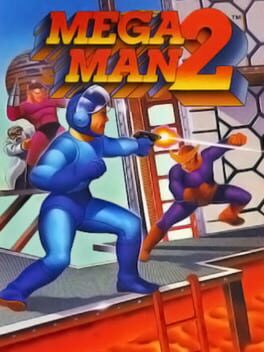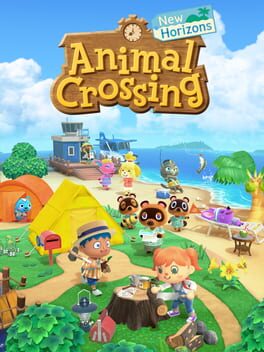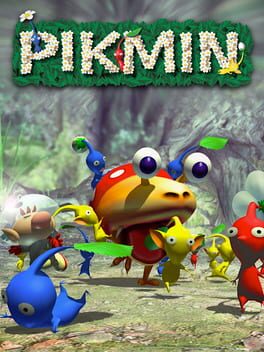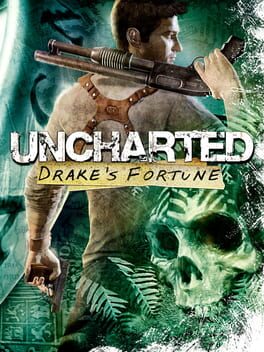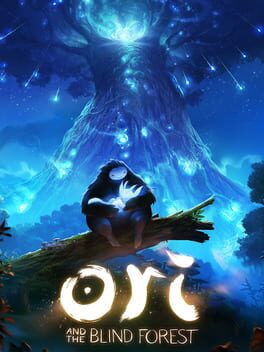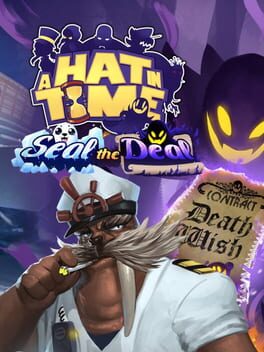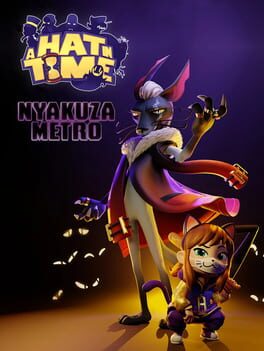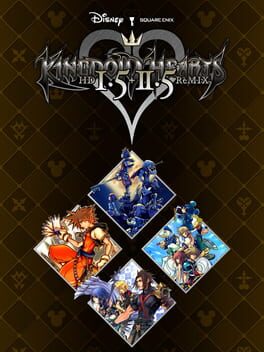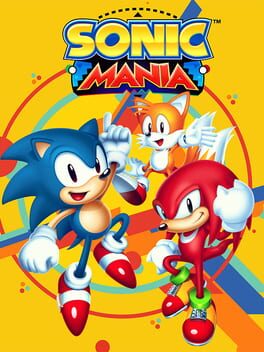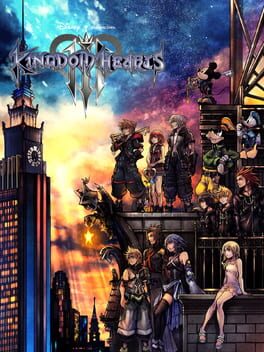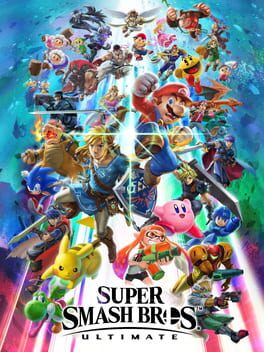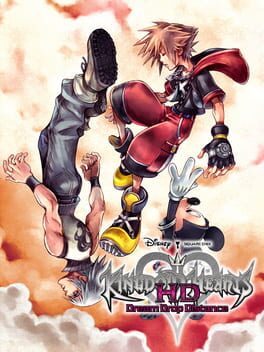Lickiwrath
1989
It's honestly kind of amazing how this game even exists. The first game wasn't successful, so this was made during the developers' free time while they worked on other projects, it only had 3-4 months of development time, and still somehow managed to be better than Mega Man 1 in every way, be considered the best Mega Man game on the NES, and is arguably the best game on the console. It's one of those game design miracle stories that are really crazy to think about.
As for the game itself, it's just as surprising. Basically everything has been improved, to the point where the game is actually fun to play now. Like even separated from the original game, Mega Man 2 is just really fun to play. The core gameplay is solid, the weapons are fun to play with, it looks really good, it performs flawlessly for NES standards, and the music SLAPS. Easily the best part of the game is the soundtrack; I listen to it all the time.
Give this one a shot. I think it's one of the few NES games that's actually worth your time nowadays, and it's easily my personal favorite.
As for the game itself, it's just as surprising. Basically everything has been improved, to the point where the game is actually fun to play now. Like even separated from the original game, Mega Man 2 is just really fun to play. The core gameplay is solid, the weapons are fun to play with, it looks really good, it performs flawlessly for NES standards, and the music SLAPS. Easily the best part of the game is the soundtrack; I listen to it all the time.
Give this one a shot. I think it's one of the few NES games that's actually worth your time nowadays, and it's easily my personal favorite.
1994
I'll be honest, I didn't even finish it. In fact, I don't think I got halfway through it. I just couldn't be bothered.
There are two humungous flaws that made me put the game down: 1. The encounter rate is absurdly high. I'm unsure if it has the highest encounter rate of any game I've ever played, but it is certainly a contender. You can't go 5 steps without a random encounter in this game.
And what makes it even worse is 2. Every fight is enough to cripple you. Now I'm not saying that the game is bad because it's hard or because it's filled with grinding. I've played plenty of hard games and plenty of grindy ones as well. But damn do these fights drain you of your resources. And I'm not talking about bosses; from what I played, the bosses were some of my favorite parts. No, I'm talking about all the ordinary fights that take place in-between those more significant battles. By the time I reach each new town, I've used most of my items, I'm drained of MP, and I usually have at least one dead party member. It's a slog to go anywhere in this game, and that hurts to say because aside from these two issues, the game has a lot of solid aspects.
I think the sprite-work is awesome, certainly one of the best looking super nintendo games. The music is awesome. Not as good as Final Fantasy IV overall, in my opinion, but there is definitely a lot more diversity in the music in comparison to that game, and I certainly consider the best of VI's songs to top the best of IV's songs. I really like the story. Kefka is a great villain, and I'm amazed by how much they made him into a hatable bastard through storytelling on the super nintendo. I really like Terra and Locke and was really curious to see where their stories continued; I can't say much for the rest of the characters, but I also don't think I made it far enough in the game to see where their stories really picked up.
And I think the best part of the game is all of the memorable sequences. The ghost train, the opera, the poisoned river, defending the mountain from Kefka (that was my favorite part of the game for sure). For the most part, I was really invested in what was happening, not just because of the story and characters, but also because of all the different things that were happening.
It's just a shame that it's hard to enjoy those things when the game itself is not fun to play. As much as I enjoyed the experience, they can't outweigh the flaws. I really, really hate playing the game, and so I stopped.
What I really want is for Square Enix to remake this game in the style of Octopath Traveller. That would be fantastic; not only can they iron out the issues, but it would give them the perfect opportunity to make the game look and sound better and bring the storytelling up to modern standards. If that were to happen, I would 100% give it another shot. But as it is now, I'm not a fan. Earthbound and Chrono Trigger are better SNES RPGs, heck I even like Final Fantasy IV more than this one.
There are two humungous flaws that made me put the game down: 1. The encounter rate is absurdly high. I'm unsure if it has the highest encounter rate of any game I've ever played, but it is certainly a contender. You can't go 5 steps without a random encounter in this game.
And what makes it even worse is 2. Every fight is enough to cripple you. Now I'm not saying that the game is bad because it's hard or because it's filled with grinding. I've played plenty of hard games and plenty of grindy ones as well. But damn do these fights drain you of your resources. And I'm not talking about bosses; from what I played, the bosses were some of my favorite parts. No, I'm talking about all the ordinary fights that take place in-between those more significant battles. By the time I reach each new town, I've used most of my items, I'm drained of MP, and I usually have at least one dead party member. It's a slog to go anywhere in this game, and that hurts to say because aside from these two issues, the game has a lot of solid aspects.
I think the sprite-work is awesome, certainly one of the best looking super nintendo games. The music is awesome. Not as good as Final Fantasy IV overall, in my opinion, but there is definitely a lot more diversity in the music in comparison to that game, and I certainly consider the best of VI's songs to top the best of IV's songs. I really like the story. Kefka is a great villain, and I'm amazed by how much they made him into a hatable bastard through storytelling on the super nintendo. I really like Terra and Locke and was really curious to see where their stories continued; I can't say much for the rest of the characters, but I also don't think I made it far enough in the game to see where their stories really picked up.
And I think the best part of the game is all of the memorable sequences. The ghost train, the opera, the poisoned river, defending the mountain from Kefka (that was my favorite part of the game for sure). For the most part, I was really invested in what was happening, not just because of the story and characters, but also because of all the different things that were happening.
It's just a shame that it's hard to enjoy those things when the game itself is not fun to play. As much as I enjoyed the experience, they can't outweigh the flaws. I really, really hate playing the game, and so I stopped.
What I really want is for Square Enix to remake this game in the style of Octopath Traveller. That would be fantastic; not only can they iron out the issues, but it would give them the perfect opportunity to make the game look and sound better and bring the storytelling up to modern standards. If that were to happen, I would 100% give it another shot. But as it is now, I'm not a fan. Earthbound and Chrono Trigger are better SNES RPGs, heck I even like Final Fantasy IV more than this one.
Animal Crossing is a very fun game, but that statement comes with an asterisk. It's a very slow-paced game. The only thing you really do in this game is mingle with your animal neighbors and build up your island from a deserted disaster into a bustling town.
It is undeniably charming due to the writing, the interactions with the characters, the visuals, and oddly enough the user interface. Everything about it is super cute.
But the game also straddles the line between relaxing and tedious. There isn't much to do; I wasn't exaggerating when I said this game is just talking to animals and building your town. It's a life simulator that takes place in real time, meaning that throughout your time with the game there will be multiple instances where there is nothing to do, and you have to wait hours or days for things to naturally progress.
That doesn't stop people from advancing time forward by manually changing the Switch's internal clock, but the point is that it isn't exactly brimming with content. The game tries to hook you, giving you more of the experience little by little to keep you playing as long as possible. I think it's successful in this regard; the charm is enough to make me enjoy my time, and the long term work of decorating your island, expanding your home and filling out the museum is super satisfying. But I do wish that there was something else to fill the time, some sort of alternate objectives or maybe some mini games (Nook Miles sort of address this issue, but those aren't exactly unlocked quickly or fun to do).
New Horizons also makes a lot of quality of life improvements to the series: placing furniture outside, using materials to craft items, an improved interior decoration mode, terraformation, moving building around, etc. These are very welcome advancements, but they make a lot of the rest of the game feel dated by comparison. There are still a ton of inconveniences that require a lot of patience from the player to overcome, like the amount of repetitious texts in dialogue and menus, the fact that you only have one terminal to access new items and abilities, the inability to craft multiple items at once, etc. It's sort of a weird balance, because if there aren't enough conveniences the game will feel tedious, but if there are too many conveniences it sort of defeats the purpose of being a life simulation. Overall, New Horizons handles that balance decently well, but it could be a little bit better.
I think my biggest problem with the game though is that it's lacking a lot of features from previous games. Specifically, I miss main street from New Leaf. I played a lot of New Leaf as a kid and absolutely loved it. Oddly enough, despite how much I played it, I don't remember much of it, but main street has always stuck in my mind. When you move into town in New Leaf, main street is pretty run down. The buildings are abandoned and boarded up, and there aren't many stores that are open. But as you progress, you slowly reopen these buildings and unlock a lot of new features and upgrade them until main street is really lively. It was a great visual indicator of progress; as soon as you start the game you have a vague idea of what your town might look like. New Horizons doesn't have anything like this; rather it is up to the player to build their island how they see fit. It allows for a lot more creativity, but it also means that it's harder to get players invested without an image of something to work towards.
It is undeniably charming due to the writing, the interactions with the characters, the visuals, and oddly enough the user interface. Everything about it is super cute.
But the game also straddles the line between relaxing and tedious. There isn't much to do; I wasn't exaggerating when I said this game is just talking to animals and building your town. It's a life simulator that takes place in real time, meaning that throughout your time with the game there will be multiple instances where there is nothing to do, and you have to wait hours or days for things to naturally progress.
That doesn't stop people from advancing time forward by manually changing the Switch's internal clock, but the point is that it isn't exactly brimming with content. The game tries to hook you, giving you more of the experience little by little to keep you playing as long as possible. I think it's successful in this regard; the charm is enough to make me enjoy my time, and the long term work of decorating your island, expanding your home and filling out the museum is super satisfying. But I do wish that there was something else to fill the time, some sort of alternate objectives or maybe some mini games (Nook Miles sort of address this issue, but those aren't exactly unlocked quickly or fun to do).
New Horizons also makes a lot of quality of life improvements to the series: placing furniture outside, using materials to craft items, an improved interior decoration mode, terraformation, moving building around, etc. These are very welcome advancements, but they make a lot of the rest of the game feel dated by comparison. There are still a ton of inconveniences that require a lot of patience from the player to overcome, like the amount of repetitious texts in dialogue and menus, the fact that you only have one terminal to access new items and abilities, the inability to craft multiple items at once, etc. It's sort of a weird balance, because if there aren't enough conveniences the game will feel tedious, but if there are too many conveniences it sort of defeats the purpose of being a life simulation. Overall, New Horizons handles that balance decently well, but it could be a little bit better.
I think my biggest problem with the game though is that it's lacking a lot of features from previous games. Specifically, I miss main street from New Leaf. I played a lot of New Leaf as a kid and absolutely loved it. Oddly enough, despite how much I played it, I don't remember much of it, but main street has always stuck in my mind. When you move into town in New Leaf, main street is pretty run down. The buildings are abandoned and boarded up, and there aren't many stores that are open. But as you progress, you slowly reopen these buildings and unlock a lot of new features and upgrade them until main street is really lively. It was a great visual indicator of progress; as soon as you start the game you have a vague idea of what your town might look like. New Horizons doesn't have anything like this; rather it is up to the player to build their island how they see fit. It allows for a lot more creativity, but it also means that it's harder to get players invested without an image of something to work towards.
2001
Pikmin is a very frustrating game. For every good thing it does there are two missteps. The core gameplay is solid; the process of building up an army to do as much as possible in as little time as possible is really cathartic. But the level design is infuriating, with so many walls ledges that force you to go in roundabout ways that waste your time.
The world is super interesting, with the diverse locales and weird alien species offering a lot of intrigue about this planet. But the enemies are really irritating, and it's easy to lose a ton of your Pikmin all at once because the game didn't do what you wanted to do and the enemies wipe out a third of you Pikmin instantaneously.
Not helping matters are all the mechanical problems. The camera is never in a good position to see what you need to see, and I swear to God it moves on its own. The AI of the Pikmin is complete garbage; it's honestly kind of hilarious to watch how dopey they are, but it's maddening to watch them trip for the 214th time and to blow the whistle multiple times while they refuse to listen to you.
It's a bit hard to recommend this game. When I played it, I couldn't stop thinking about it because of how solid the world and core gameplay is, but there's a lot holding it back.
The world is super interesting, with the diverse locales and weird alien species offering a lot of intrigue about this planet. But the enemies are really irritating, and it's easy to lose a ton of your Pikmin all at once because the game didn't do what you wanted to do and the enemies wipe out a third of you Pikmin instantaneously.
Not helping matters are all the mechanical problems. The camera is never in a good position to see what you need to see, and I swear to God it moves on its own. The AI of the Pikmin is complete garbage; it's honestly kind of hilarious to watch how dopey they are, but it's maddening to watch them trip for the 214th time and to blow the whistle multiple times while they refuse to listen to you.
It's a bit hard to recommend this game. When I played it, I couldn't stop thinking about it because of how solid the world and core gameplay is, but there's a lot holding it back.
This is the first cover-based shooter I've ever played, and I gotta say I'm not a fan. Every shootout feels the same and they're almost always really frustrating, mainly because it's hard to get your bearings of everything that's happening around you, there's about 30 mooks per shootout, and Nate gets stuck on the terrain when you're trying to move around and he puts himself in the line of fire.
Outside of shootouts, you mainly climb and platform with a dash of puzzle-solving and the occasional vehicle section . The puzzles are ok at best, the vehicle sections suck ass, and the climbing/platforming is terrible. Most of the time it's hard to tell what you can or can't climb onto or it's unclear where you're supposed to jump to. Combine that with the terrible jumping controls and you have a game that is less an Indiana-Jones-style-action-adventure-game and more a suicide simulator.
The story is the only note-worthy thing here, and it's honestly just ok. I like the writing; it's smart and funny at times. I like our main trio, even if they're pretty generic. It's just ok and really not worth the frustration of the game just to see it.
From what I gather, most people don't like this one and I have to agree. Here's hoping Uncharted 2 is the masterpiece everyone says it is.
Outside of shootouts, you mainly climb and platform with a dash of puzzle-solving and the occasional vehicle section . The puzzles are ok at best, the vehicle sections suck ass, and the climbing/platforming is terrible. Most of the time it's hard to tell what you can or can't climb onto or it's unclear where you're supposed to jump to. Combine that with the terrible jumping controls and you have a game that is less an Indiana-Jones-style-action-adventure-game and more a suicide simulator.
The story is the only note-worthy thing here, and it's honestly just ok. I like the writing; it's smart and funny at times. I like our main trio, even if they're pretty generic. It's just ok and really not worth the frustration of the game just to see it.
From what I gather, most people don't like this one and I have to agree. Here's hoping Uncharted 2 is the masterpiece everyone says it is.
I should preface this review by stating my history with this game. That is to say, I have none. Not only did I never play the original, but this is also the only Final Fantasy game I’ve played to the credits. I’ve played about half of FFIV and FFVI and I have my own thoughts on those, but that’s not what this review is about. Suffusive to say, this perspective will be discussing FFVII REMAKE as a game on its own. If there’s anything that this game does that is different from the original, I don’t know about them, and if there’s anything about this game that originated in older Final Fantasies since the original, I don’t know about those either. With that out of the way, here are my thoughts.
I think the first thing to touch on is how gorgeous the game looks. I’m not one to play every newly released game as soon as they come out, but from what I’ve played, this is probably the best looking game I’ve ever seen. It’s not perfect; some smaller details are very poorly rendered and obviously NPCs don’t look as good as the main cast, but the model quality, the animation, and the environments look absolutely astounding.
I really like the story. For a fantasy RPG, especially one made by Square Enix, it has a very down-to-earth and realistic premise. The plot touches on the corruption of corporations and governments, the horrors of war and terrorism, and the contrast between the upper and lower classes in ways that are very relatable and applicable to the real world. Seeing Cloud doing jobs in the slums of sector 5, watching the aftermath of the mako reactor explosion in upper sector 8, these moments have a real somberness to them that made me stop and soak in the weight of the tragedies that were happening in this world. That’s not to say it doesn’t have completely ridiculous, bonkers moments — it has plenty of them and I love them just as much — but it’s refreshing to play a game in a genre (and from a studio) usually known for its outlandishness that feels very grounded.
I also love the characters. Cloud isn’t an amazing protagonist, but I enjoy seeing his cold, hard-ass personality being tested not only by the much more outgoing, bubbly people surrounding him, but also by the harsh, cruel events that he’s involved in. He’s also just plain cool. Tifa doesn’t have a particularly captivating personality and she’s probably my least favorite of the main cast, but she isn’t bad at all and I really like watching her personal struggle with the morality of Avalanche’s actions. Barrett is awesome. He’s so over the top and I love pretty much all of his lines. He has a great dynamic with Cloud, and I like how they make him a big softie with his daughter and the people close to him; he isn’t a wuss (in fact he might actually be deranged), but he’s got a heart of gold. Aerith is almost as good. When I saw her in the opening cutscene, the way she moved and acted gave me the impression that she would be timid and soft-spoken, but that couldn’t be further from the truth. She’s perky and sassy and is always trying to help people out (I also really appreciate how she never sides with Avalanche, and even though she has similar interests, she’s just doing her best to be an ordinary person). She’s the polar opposite of Cloud and it’s great watching them play off each other, especially seeing her read Cloud like a book. All the minor characters like Biggs, Wedge, and Jessie, the Turks, Chadley, the heads of Shinra, Red XIII, all of them were great as well.
Gameplay wise, it took a while for me to get a hang of the combat. I’m used to playing Kingdom Hearts, so I usually approach ARPGs with that kind of gameplay in mind. Needless to say, that did not work here. The focus of the combat in Kingdom Hearts is identifying patterns and punishing openings; it’s very reactionary. Here’s it’s a lot more methodical. You have to analyze what you’re capable of that can stagger your opponent in order to cripple their defenses and deal a lot of damage in a short amount of time. In Kingdom Hearts you have to figure out WHEN to attack enemies. Here you have to figure out HOW to attack enemies. And once I understood that difference, I fell in love with it!
I think the turn-based format transitions really well into a real-time 3D system. I think the balance between combat and menu navigation was really well handled. I like how summons and limits were handled, only giving you access to them when you were in a pinch; they definitely change the tide of battle into your favor but you have to be at a pretty big disadvantage in order to access them, and that made it feel like you weren’t given free damage. The fights that really take advantage of your knowledge of how the game works and puts your skills to the test were awesome (the fight against the Behemoth being my favorite boss easily).
Outside of combat is where my opinions become a bit more mixed. I absolutely loved the more linear sections. I already mentioned exploring sectors 5 and 8, but I also loved chapter 4, the second reactor in chapter 7 and especially infiltrating Shinra HQ in chapter 16. These more linear segments were the highlight for me; they feel like such a tightly designed narrative and gameplay experience. I also really like the slower, more puzzley elements like the awkward platforming and lever-pulling segments. Usually these moments would break a game’s pacing in half, but I oddly enjoyed them. They fit in really well with more realistic approach of the plot, so I don’t mind them.
However, the game will frequently pause from these more linear moments and give you open areas where you complete a bunch of side quests. Perhaps this is more of a personal issue since I usually hate side quests in any game, but these were some of the worst moments for me. I hesitate to call them padding because for the most part they’re all fun, rewarding, narratively rich, and (most importantly) optional. I did enjoy doing them, but they’re such a stark contrast from the more intricately designed linear sections that they ruin the pace in my opinion. I can say that the game handles side quests better than most games do, but I’m a very direct and simple man; I usually want to experience the game that the designers have created and not waste my time with stuff like this unless it’s in the post-game (which it isn’t in this case).
The only part of the game that I outright didn’t like was chapter 11. It’s a very cliché sub-plot about a haunted trainyard. It introduces and resolves a conflict within one chapter, has no influence on anything that happens before or after, and is so thematically inappropriate considering how much tension there is in the story at that point. It is purely filler; it could have been removed entirely and the game would have been better for it.
That’s most of my thoughts, but I want to briefly talk about the ending. I know there’s some sort of controversy about the ending but I don’t know what that is considering 1. I avoided it for spoiler reasons and 2. I’m pretty sure it has something to do with how it was changed from the original which, again, I don’t care about. What I want to talk about are the themes of destiny and fate that show up at the end. Personally, I thought these were completely out of nowhere and undermined a lot of the story’s weight up until that point. Shinra was a great villain, and for them to ultimately be cast aside for some spiritual mumbo jumbo about altering destiny was really jarring.
Truth be told, I’m not against the idea of religion and spirituality being a factor in the plot. I think that the idea of Shinra looking for a prophesied land being the motivation behind their terrible acts toward the public and the planet was a really intriguing and unique idea. It’s just that the themes of fate and destiny wasn’t what the story was about up until that point.
But maybe that has more to do with a different, potentially controversial issue I have: Sephiroth is a terrible villain. Not to say I don’t like him. He’s really cool, genuinely intimidating and thought-provoking. The problem is that we know nothing about him, and I think that problem stems from the fact that there’s a lot of background information that the game doesn’t tell us about. Who even is Sephiroth and how did he supposedly die? What was the war about and when/where did it take place? What is a SOLDIER and why is it capitalized? Why did Cloud want to become a SOLIDER, and more importantly, why did he quit? Why does Cloud have mako cancer or whatever causes his headaches/hallucinations? Who is the creepy old test subject guy that keeps showing up and who everyone thinks is Sephiroth? Why is the world going to end and what makes Sephiroth the greatest threat to the planet? And most importantly, what is the relationship between Sephiroth and Cloud, and why is Cloud seemingly traumatized by Sephiroth’s existence?
I know that some of these questions may be there for us to think about for future parts, but a lot of these feel like essential background information that the game doesn’t tell us about. Sephiroth isn’t a great villain because we know absolutely nothing about him or his backstory, and for him to ultimately take the spotlight away from Shinra, who was not only the main villain for the entire game but also very well fleshed out, is odd to say the least.
That’s pretty much all I have to say. The only thing left to talk about is HOT DAMN the music is incredible! 10 hours of gorgeous compositions that fit the game perfectly and are great listens outside of the game as well. Probably one of the best soundtracks I’ve ever heard, if for no other reason than how much there is. I’ve been learning how to play Hollow and Jessie’s theme and have had them on loop for days.
Also, my favorite moment of the game was Cloud dancing with Andrea in the Honeybee Inn. I could not stop laughing that entire time, and it was easily my highlight.
Overall, Final Fantasy VII Remake is a phenomenal game. It is easily my favorite game that I’ve played so far this year, and unless Breath of the Wild 2 comes out in 2020, this will probably be my game of the year. It also has its hooks really deep in me; not only am I excited for future parts, but this is the first game I’ve played since A Link Between Worlds seven years ago that I immediately wanted to play again once I finished it. It’s held back by some pacing issues in the gameplay and an underwhelming conclusion, but it is nonetheless fantastic.
I think the first thing to touch on is how gorgeous the game looks. I’m not one to play every newly released game as soon as they come out, but from what I’ve played, this is probably the best looking game I’ve ever seen. It’s not perfect; some smaller details are very poorly rendered and obviously NPCs don’t look as good as the main cast, but the model quality, the animation, and the environments look absolutely astounding.
I really like the story. For a fantasy RPG, especially one made by Square Enix, it has a very down-to-earth and realistic premise. The plot touches on the corruption of corporations and governments, the horrors of war and terrorism, and the contrast between the upper and lower classes in ways that are very relatable and applicable to the real world. Seeing Cloud doing jobs in the slums of sector 5, watching the aftermath of the mako reactor explosion in upper sector 8, these moments have a real somberness to them that made me stop and soak in the weight of the tragedies that were happening in this world. That’s not to say it doesn’t have completely ridiculous, bonkers moments — it has plenty of them and I love them just as much — but it’s refreshing to play a game in a genre (and from a studio) usually known for its outlandishness that feels very grounded.
I also love the characters. Cloud isn’t an amazing protagonist, but I enjoy seeing his cold, hard-ass personality being tested not only by the much more outgoing, bubbly people surrounding him, but also by the harsh, cruel events that he’s involved in. He’s also just plain cool. Tifa doesn’t have a particularly captivating personality and she’s probably my least favorite of the main cast, but she isn’t bad at all and I really like watching her personal struggle with the morality of Avalanche’s actions. Barrett is awesome. He’s so over the top and I love pretty much all of his lines. He has a great dynamic with Cloud, and I like how they make him a big softie with his daughter and the people close to him; he isn’t a wuss (in fact he might actually be deranged), but he’s got a heart of gold. Aerith is almost as good. When I saw her in the opening cutscene, the way she moved and acted gave me the impression that she would be timid and soft-spoken, but that couldn’t be further from the truth. She’s perky and sassy and is always trying to help people out (I also really appreciate how she never sides with Avalanche, and even though she has similar interests, she’s just doing her best to be an ordinary person). She’s the polar opposite of Cloud and it’s great watching them play off each other, especially seeing her read Cloud like a book. All the minor characters like Biggs, Wedge, and Jessie, the Turks, Chadley, the heads of Shinra, Red XIII, all of them were great as well.
Gameplay wise, it took a while for me to get a hang of the combat. I’m used to playing Kingdom Hearts, so I usually approach ARPGs with that kind of gameplay in mind. Needless to say, that did not work here. The focus of the combat in Kingdom Hearts is identifying patterns and punishing openings; it’s very reactionary. Here’s it’s a lot more methodical. You have to analyze what you’re capable of that can stagger your opponent in order to cripple their defenses and deal a lot of damage in a short amount of time. In Kingdom Hearts you have to figure out WHEN to attack enemies. Here you have to figure out HOW to attack enemies. And once I understood that difference, I fell in love with it!
I think the turn-based format transitions really well into a real-time 3D system. I think the balance between combat and menu navigation was really well handled. I like how summons and limits were handled, only giving you access to them when you were in a pinch; they definitely change the tide of battle into your favor but you have to be at a pretty big disadvantage in order to access them, and that made it feel like you weren’t given free damage. The fights that really take advantage of your knowledge of how the game works and puts your skills to the test were awesome (the fight against the Behemoth being my favorite boss easily).
Outside of combat is where my opinions become a bit more mixed. I absolutely loved the more linear sections. I already mentioned exploring sectors 5 and 8, but I also loved chapter 4, the second reactor in chapter 7 and especially infiltrating Shinra HQ in chapter 16. These more linear segments were the highlight for me; they feel like such a tightly designed narrative and gameplay experience. I also really like the slower, more puzzley elements like the awkward platforming and lever-pulling segments. Usually these moments would break a game’s pacing in half, but I oddly enjoyed them. They fit in really well with more realistic approach of the plot, so I don’t mind them.
However, the game will frequently pause from these more linear moments and give you open areas where you complete a bunch of side quests. Perhaps this is more of a personal issue since I usually hate side quests in any game, but these were some of the worst moments for me. I hesitate to call them padding because for the most part they’re all fun, rewarding, narratively rich, and (most importantly) optional. I did enjoy doing them, but they’re such a stark contrast from the more intricately designed linear sections that they ruin the pace in my opinion. I can say that the game handles side quests better than most games do, but I’m a very direct and simple man; I usually want to experience the game that the designers have created and not waste my time with stuff like this unless it’s in the post-game (which it isn’t in this case).
The only part of the game that I outright didn’t like was chapter 11. It’s a very cliché sub-plot about a haunted trainyard. It introduces and resolves a conflict within one chapter, has no influence on anything that happens before or after, and is so thematically inappropriate considering how much tension there is in the story at that point. It is purely filler; it could have been removed entirely and the game would have been better for it.
That’s most of my thoughts, but I want to briefly talk about the ending. I know there’s some sort of controversy about the ending but I don’t know what that is considering 1. I avoided it for spoiler reasons and 2. I’m pretty sure it has something to do with how it was changed from the original which, again, I don’t care about. What I want to talk about are the themes of destiny and fate that show up at the end. Personally, I thought these were completely out of nowhere and undermined a lot of the story’s weight up until that point. Shinra was a great villain, and for them to ultimately be cast aside for some spiritual mumbo jumbo about altering destiny was really jarring.
Truth be told, I’m not against the idea of religion and spirituality being a factor in the plot. I think that the idea of Shinra looking for a prophesied land being the motivation behind their terrible acts toward the public and the planet was a really intriguing and unique idea. It’s just that the themes of fate and destiny wasn’t what the story was about up until that point.
But maybe that has more to do with a different, potentially controversial issue I have: Sephiroth is a terrible villain. Not to say I don’t like him. He’s really cool, genuinely intimidating and thought-provoking. The problem is that we know nothing about him, and I think that problem stems from the fact that there’s a lot of background information that the game doesn’t tell us about. Who even is Sephiroth and how did he supposedly die? What was the war about and when/where did it take place? What is a SOLDIER and why is it capitalized? Why did Cloud want to become a SOLIDER, and more importantly, why did he quit? Why does Cloud have mako cancer or whatever causes his headaches/hallucinations? Who is the creepy old test subject guy that keeps showing up and who everyone thinks is Sephiroth? Why is the world going to end and what makes Sephiroth the greatest threat to the planet? And most importantly, what is the relationship between Sephiroth and Cloud, and why is Cloud seemingly traumatized by Sephiroth’s existence?
I know that some of these questions may be there for us to think about for future parts, but a lot of these feel like essential background information that the game doesn’t tell us about. Sephiroth isn’t a great villain because we know absolutely nothing about him or his backstory, and for him to ultimately take the spotlight away from Shinra, who was not only the main villain for the entire game but also very well fleshed out, is odd to say the least.
That’s pretty much all I have to say. The only thing left to talk about is HOT DAMN the music is incredible! 10 hours of gorgeous compositions that fit the game perfectly and are great listens outside of the game as well. Probably one of the best soundtracks I’ve ever heard, if for no other reason than how much there is. I’ve been learning how to play Hollow and Jessie’s theme and have had them on loop for days.
Also, my favorite moment of the game was Cloud dancing with Andrea in the Honeybee Inn. I could not stop laughing that entire time, and it was easily my highlight.
Overall, Final Fantasy VII Remake is a phenomenal game. It is easily my favorite game that I’ve played so far this year, and unless Breath of the Wild 2 comes out in 2020, this will probably be my game of the year. It also has its hooks really deep in me; not only am I excited for future parts, but this is the first game I’ve played since A Link Between Worlds seven years ago that I immediately wanted to play again once I finished it. It’s held back by some pacing issues in the gameplay and an underwhelming conclusion, but it is nonetheless fantastic.
The level itself is honestly my favorite in the game. It's a giant cruise ship is super fun to run around in and explore all of the different areas. However, the missions that accompany it are extremely frustrating, and easily the worst parts of the game. On top of that, it is exceptionally unpolished (not nearly to the extent of Nyakuza Metro, but still pretty bad).
The inverse of Seal the Deal for me. The missions in this DLC are super fun and really test your skills with the platforming. On top of that, the characters and writing are better than anything in the base game. However, the world itself is bland. It's a ginormous subway system, hard to navigate and lacking in set-pieces that would give it any sort of visual flair. On top of that, it performs worse than anything I've ever played. Textures and objects don't load in for upwards of 30 seconds (I'm not exaggerating I timed it), and sometimes things wouldn't spawn in at all and I was forced to restart missions. I took screenshots that are absolutely horrifying, they look like a windows xp error multiplying on-screen. If you're willing to put up with all of that, there is definite fun to be had here, but it is exceptionally unpolished and was unquestionably rushed out.
So, I don't really understand why people would give this anything less than 5 stars. Regardless of what you think about the actual games, this collection is fantastic. The games are upscaled, technical issues were fixed across all games, and the presentation is simple and clean; the best kind of remaster. There are much worse collections out there that deserve your lower scores, so if you have a problem with the games themselves, rate them individually, and please don't taint a good package.
2017
After replaying it, I think I can safely say that this is my favorite classic Sonic game. Everything that was done in the older games is done better here, from the music, to the insane spritework, to the remixed level designs and gimmicks.
It's still not perfect: the special stages are still terrible, the boss fights could have been much better, and I still maintain that trying to emulate and old game with new hardware doesn't quite feel right, but those things aside, this game is still fantastic and almost complete devoid of all the trappings of the genesis games, letting you enjoy classic Sonic action with almost zero bs, which feels great.
It's still not perfect: the special stages are still terrible, the boss fights could have been much better, and I still maintain that trying to emulate and old game with new hardware doesn't quite feel right, but those things aside, this game is still fantastic and almost complete devoid of all the trappings of the genesis games, letting you enjoy classic Sonic action with almost zero bs, which feels great.
2019
I just played a 120 hour JRPG twice in a row. I loved it even more the second time, but I'm also much more frustrated by its shortcomings.
The characters are great, the gameplay is fun, there is a ton of creativity in the dungeons, but I can't get over how lackluster the story is. Nothing about its themes are profound or interesting (despite how obnoxiously it tries towards the end), for a story all about cognition it feels like that idea is never fully utilized, there is 0 tension because of how repetitive each palace is, the ending of the base game is awful, and the Royal exclusive content is an okay epilogue instead of a revised story.
The first 100 hours are excellent, but then the storytelling falls off a cliff. For some people that might be enough, but for me, there are too many cracks, and it inevitably breaks under it all.
The characters are great, the gameplay is fun, there is a ton of creativity in the dungeons, but I can't get over how lackluster the story is. Nothing about its themes are profound or interesting (despite how obnoxiously it tries towards the end), for a story all about cognition it feels like that idea is never fully utilized, there is 0 tension because of how repetitive each palace is, the ending of the base game is awful, and the Royal exclusive content is an okay epilogue instead of a revised story.
The first 100 hours are excellent, but then the storytelling falls off a cliff. For some people that might be enough, but for me, there are too many cracks, and it inevitably breaks under it all.
2019
Simultaneously disappointing and surprising in different areas. Personally not what I wanted as a long time fan of series, but across multiple playthroughs, I've come to respect how it shows certain areas of the series at their best.
On the bright side, I don't think I've ever been more excited for the future of the series than I am now. And thankfully, the DLC is the best part of the game.
On the bright side, I don't think I've ever been more excited for the future of the series than I am now. And thankfully, the DLC is the best part of the game.
I don't get why everyone hates the time travel. Billy Zane plays Ansem, a time traveller. Billy Zane was also in Back to the Future, a movie about time travel. Christopher Lloyd was also in Back to the Future, a movie about time travel. Christopher Lloyd plays Master Xehanort, a time traveller. The real reason Dr. Emmett Brown travelled to the year 2015 was to find the last of the XIII vessels. GREAT SCOTT, DON'T YOU SEE? WE'VE BEEN FOOLED THIS WHOLE TIME!!!!!!!!
